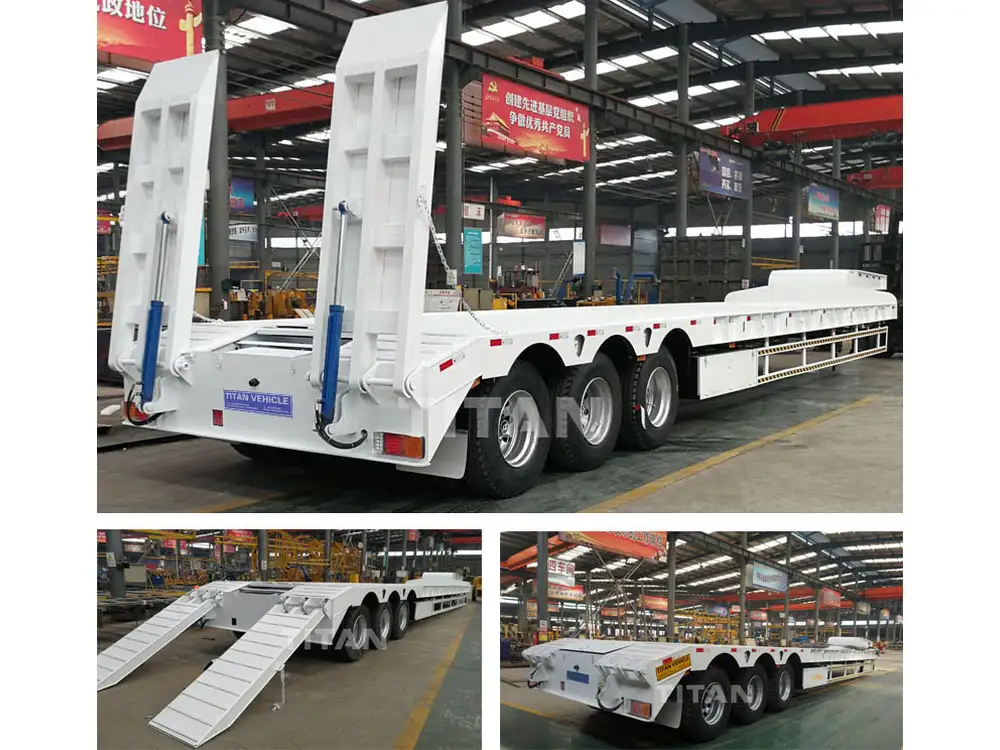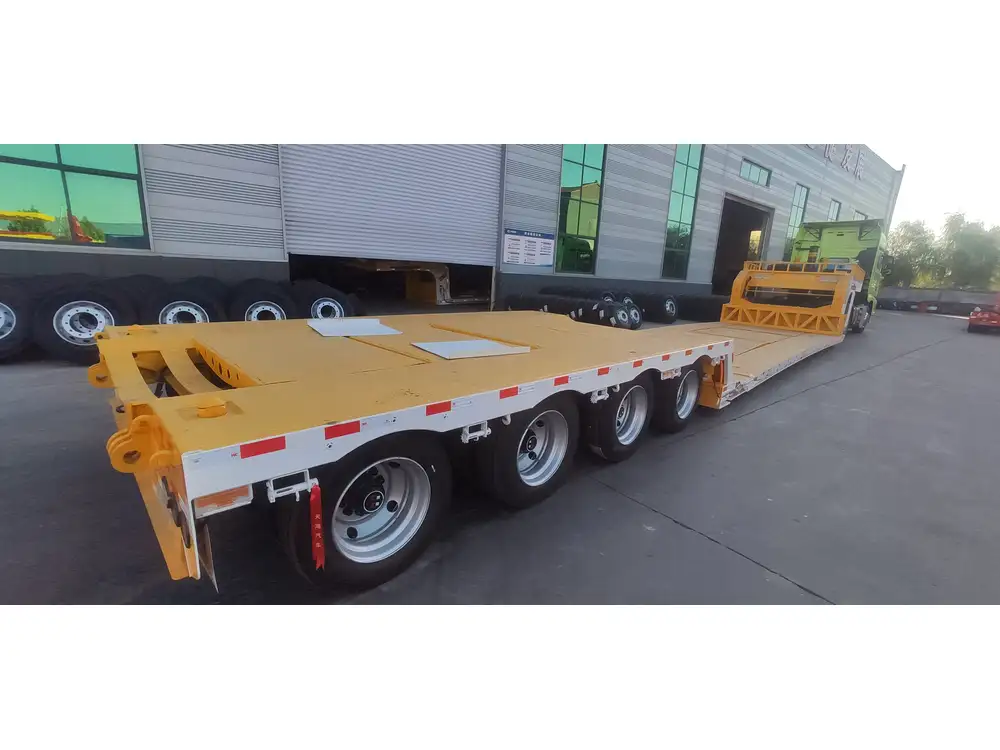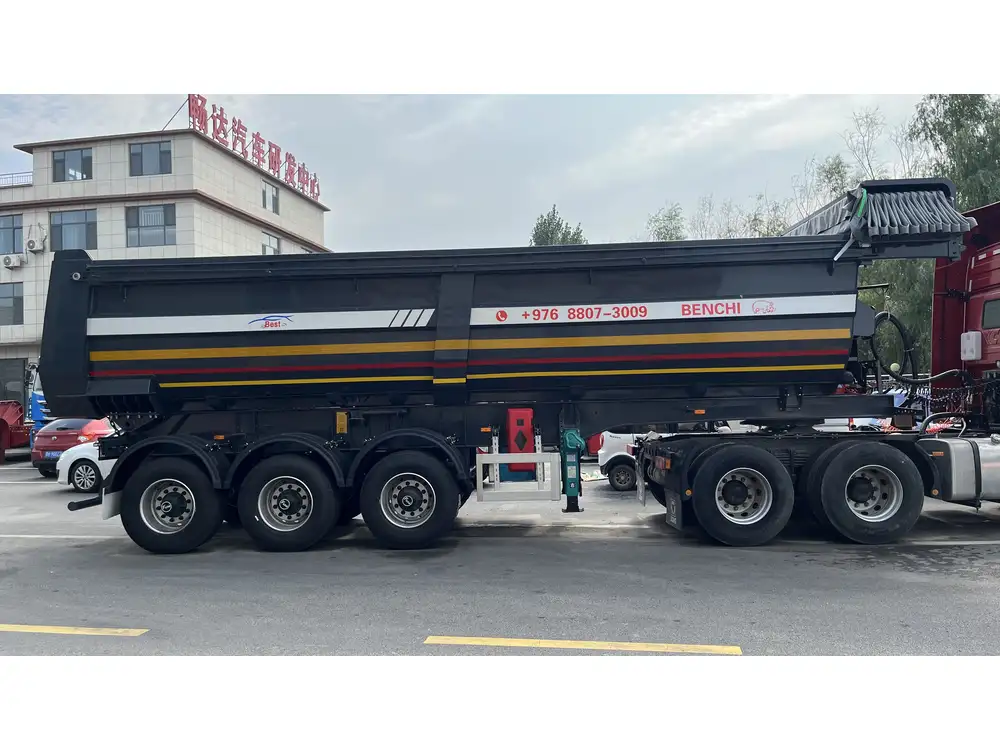Dump trailers are vital components in various industries, particularly the construction, agriculture, and transportation sectors. They facilitate the efficient movement of bulk materials, making them indispensable for numerous tasks. However, one aspect that can often leave users perplexed is the type of fluid required for optimal functioning. This article aims to provide an extensive overview of what fluid goes in dump trailers, ensuring you grasp every detail necessary for effective maintenance and operation.
Types of Dump Trailers and Their Fluid Requirements
Dump trailers come in various configurations and sizes, each having unique fluid requirements. Understanding these differences is essential for ensuring the longevity and efficiency of your trailer.
1. Hydraulic Dump Trailers
Hydraulic dump trailers utilize fluid power to operate the lifting mechanism. The primary fluid used in these trailers is hydraulic oil. Here’s a detailed comparison of hydraulic oils most commonly used:
| Type of Hydraulic Oil | Viscosity (cSt at 40°C) | Applications | Pros | Cons |
|---|---|---|---|---|
| ISO AW 32 | 32 | General purpose hydraulic applications | Good lubrication properties | Higher cost |
| ISO AW 46 | 46 | Heavy machinery, construction applications | Better than AW 32 in high temps | Can be thick in cold weather |
| Biodegradable Hydraulic Oil | Varies | Environmentally sensitive areas | Environmentally friendly | More expensive, limited availability |

2. Electric Dump Trailers
For electric dump trailers, while hydraulic oil still plays a role, the primary focus shifts towards ensuring the electric systems are adequately maintained. Here, other fluids, such as dielectric fluid for electrical components, may apply.
| Fluid Type | Use |
|---|---|
| Dielectric Fluid | Insulates and cools electric systems, preventing spark and overheating |
| Hydraulic Oil | For operating hydraulic rams |
| Grease | For wheel bearings and joints |
3. Pneumatic Dump Trailers
These trailers utilize air pressure to facilitate dumping operations. The main challenge for pneumatic trailers is maintaining proper air pressure rather than fluid. However, lubrication fluids are still vital for overall functionality.
| Fluid Type | Use |
|---|---|
| Air Compressor Oil | Lubricates air compressor |
| Grease | For fittings and bearings to ensure smooth operation |
Selecting the Right Hydraulic Oil for Dump Trailers
Choosing the appropriate hydraulic oil is not just a matter of preference; it is intricately tied to the operational efficiency and longevity of the trailer. Here’s a structured method to ensure you select the best hydraulic oil:

A. Identify the Operating Environment
Consider the conditions in which the trailer will operate:
- Temperature Range: Some oils perform better at extreme temperatures.
- Dust and Debris: In dusty environments, oils with better filtration capabilities are crucial.
B. Consult Manufacturer Recommendations
Always refer to the owner’s manual. Manufacturers often provide specific hydraulic oil guidelines tailored to the trailer’s operational needs.
C. Check Availability and Compliance
It is essential to ascertain that the oil meets the necessary safety and environmental regulations in your area. For example, if operating in environmentally sensitive regions, consider biodegradable options.

Maintenance of Fluid Levels in Dump Trailers
Regular checks on fluid levels are paramount in maintaining dump trailers. Here’s a practical maintenance checklist:
1. Daily Checks
- Inspect the hydraulic fluid level.
- Look for leaks around the hydraulic cylinders and hoses.
- Ensure connections are tight.
2. Weekly Maintenance
- Verify the condition of hydraulic oil via visual inspection (color, clarity, and sediment).
- Examine the air compressor oil if applicable.
- Clean around seals and fittings to prevent dirt entry.

3. Monthly Service
- Change hydraulic oil as required (typically every 200-300 hours of operation).
- Inspect and replace filters in hydraulic systems.
- Lubricate fittings and bearings with appropriate grease.
Common Issues Related to Fluid Management in Dump Trailers
Maintaining dump trailers is not without challenges. Recognizing these potential issues can save you time and money in the long run.
1. Fluid Contamination
Signs:
- Oil discoloration
- Presence of foam or bubbles
Consequences:
- Reduced hydraulic efficiency
- Increased wear on components
Prevention:
- Use proper filtration systems.
- Regularly change fluids in adherence to maintenance schedules.

2. Overheating of Hydraulic Systems
Overheating can lead to the degradation of hydraulic fluids, resulting in premature failure of components.
Signs:
- Unusual noises during operation
- Slow or jerky movements in lifting mechanisms
Solutions:
- Install external coolers if operating in extreme environments.
- Ensure proper fluid levels and types are used.
3. Loss of Power
This often results from inadequate fluid levels or incorrect fluid types.
Symptoms:
- Reduced lifting capacity
- Sluggish response time
Tips:
- Regularly check and top off hydraulic fluid.
- Use the correct type to minimize wear on pumps and cylinders.
The Role of Maintenance in Extending Dump Trailer Longevity
Proper fluid management is pivotal in extending the life of your dump trailer. Additional maintenance practices include:

1. Seasonal Preparations
Before transitioning between seasons:
- Drain and replace fluids if necessary.
- Inspect hoses and seals for winter durability.
2. Training Operators
Educate users on proper operational techniques and fluid care:
- Importance of warm-up before heavy lifting.
- Recognizing early signs of fluid-related issues.
3. Record Keeping
Keep detailed maintenance logs:
- Document fluid changes, repairs, and inspections.
- This can help trace issues and ensure compliance with warranty requirements.

Conclusion: A Proactive Approach to Fluid Management
In conclusion, understanding what fluid goes in dump trailers is fundamental for optimal performance. Selecting the right type of hydraulic oil, performing routine maintenance checks, and recognizing common issues can vastly improve the lifespan and functionality of your dump trailer.
By taking a proactive stance, operators can avoid costly repairs, enhance operational efficiency, and ensure safe working conditions. Our commitment to providing relevant, detailed information empowers you to make informed decisions about your dump trailer’s maintenance needs.
Regular engagement with fluid management practices ensures not only the preservation of your equipment but also contributes positively to the overall productivity of your operations.



